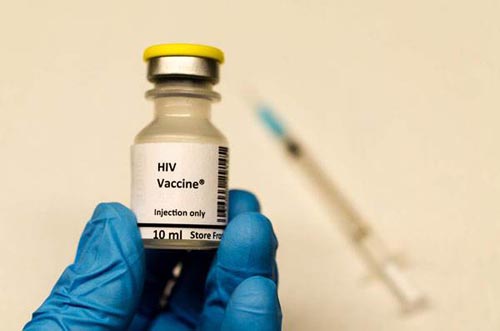- 阅读
- 阅读
- 技巧
- 百科
- 试题
- 文化
- 技能
Trial Vaccine Made Some More Vulnerable to H.I.V., Study Confirms
HIV试验疫苗增加感染可能
A follow-up study on an AIDS vaccine trial that had to be stopped early has confirmed the worst fears of researchers: The vaccine made it more likely, not less, that some men would become infected with H.I.V.
一项针对早前被迫终止的艾滋疫苗试验的后续研究证实了研究者们最大的恐惧:该疫苗增大而不是减小了一些男性感染艾滋病病毒的可能性。
Men who were not circumcised and who had previously caught common colds caused by the same virus used to make the vaccine were two to four times as likely as other men to become infected if they got the vaccine, the study concluded.
研究得出结论:没有接受过包皮环切的男性,以及曾感染过同种病毒(即用于研制疫苗的病毒)引起的普通感冒的男性,他们在接受疫苗之后感染艾滋病毒的可能性是其他男性的两到四倍。

The new study shed no new light on how that happened. “I really wish I could tell you why, but I can’t,” said Dr. Ann Duerr, a vaccine specialist at the Fred Hutchinson Cancer Research Center in Seattle, who led the data analysis for the new study.
但新研究并没有找到这一现象的原因。“我真的希望我能告诉你原因,但是我不能。”安·杜尔博士(Dr. Ann Duerr)说。他是位于西雅图的弗雷德·哈钦森癌症研究中心(Fred Hutchinson Cancer Research)的疫苗专家,主持此项新研究中的数据分析工作。
The trial of the Merck vaccine, which involved 3,000 volunteers in nine countries, began in 2004 and was abruptly halted in late 2007 when it became clear that it was not protecting anyone and suspicions arose that it was making some men more susceptible.
默克公司(Merck)研发的这一疫苗的试验共有来自九个国家的3000名志愿者参与。试验于2004年开始,但在2007年后期被突然停止,因为人们发现该疫苗不具有保护效果,并且怀疑它会致使某些男性更易受感染。
It was a frustrating failure and had repercussions across the AIDS vaccine field. Nine months later, government investigators canceled a trial of a similar vaccine because they were not sure why Merck’s had failed.
这项试验的失败让人沮丧,对整个艾滋疫苗领域都造成了影响。九个月后,政府调查员叫停了另一项类似的疫苗试验,因为他们不清楚默克疫苗失败的原因。
The search for an AIDS vaccine has proceeded slowly and cautiously since then. The only success in the field — and there are many skeptics who doubt even the weak success that was proclaimed — came in 2009. A vaccine called RV 144 that was tested on 16,000 Thai volunteers seemed to lower, at least temporarily, a man’s chances of getting infected with H.I.V. by about 31 percent. But why that one worked, albeit badly, has remained a mystery.
从那以后,艾滋疫苗的研究进程缓慢而谨慎。唯一的一次成功是在2009年,尽管这一微小成功也引起了很多怀疑者的质疑。由16000名泰国志愿者参与的试验表明,一种名为RV144的疫苗似乎能够把感染艾滋病毒的几率降低大约31%(至少是短期内)。但是疫苗成功的原因——即使效果不好——依然是一个迷。
The new study, published online this month in The Journal of Infectious Disease, followed 1,836 men from the Merck trial through the end of 2009. (More than a third of those who got the vaccine were women, but so few of them became infected that data about them was ignored.)
新研究发表在本月(5月,编者注)的《传染病杂志》网络版上。该研究跟踪观察了参与默克试验的1836名男性,一直持续到2009年底。(有三分之一以上的受试者为女性,但她们少有人感染上艾滋病毒,故相关数据被省略。)
Of those men, 172 ultimately became infected. Uncircumcised men were more likely to get infected, as were men who began the trial with high levels of antibodies to Type 5 adenovirus -- one of hundreds of viruses that can cause sniffles and headache -- before they got the vaccine.
在受试的男性当中,有172人最终感染上了艾滋病毒。没有接受包皮环切的男性,以及在注射疫苗前体内5型腺病毒抗体水平较高的男性均更容易被感染。5型腺病毒可以引起鼻塞和头痛,类似的病毒有上百种。
But that increased vulnerability seemed to fade after 18 months.
但是,这种易感状态似乎在18个月后逐渐消失。
Dr. Anthony S. Fauci, director of the National Institute of Allergy and Infectious Diseases, a partner in the vaccine trial, said Dr. Duerr’s results “add credence to the belief that the effect was real” and the most likely explanation was a biological one.
美国国家过敏症和传染病研究所(National Institute of Allergy and Infectious Diseases)所长,同样也是疫苗试验合作人的安东尼·S·福奇博士(Dr. Anthony S. Fauci)说,杜尔博士的研究结果“给疫苗效果的真实性增加了可信度”,他还说,最有可能的解释是从生理角度进行解释。
The men did not engage in riskier behavior, like more partners, more drug injection or more unprotected sex, even after they were told whether they had been given the vaccine or the placebo, Dr. Duerr said.
杜尔博士说,即使是在获悉自己接受的是疫苗还是空安慰剂之后,这些男性也没有从事更危险的行为,像更多性伴、频繁注射毒品或更多不安全性行为等。
That suggests that biology, rather than behavior, was to blame.
这说明易感状态应该归咎于生理,而不是行为。
The vaccine was made from a weakened adenovirus 5 modified to contain three genes — known as gag, pol and nef — that are found on the AIDS virus.
疫苗的来源是减毒5型腺病毒,该病毒经过改性后带有三种基因— gag, pol 和 nef—这三种基因都可以在艾滋病毒上找到。
In theory, Dr. Duerr said, men who had already caught an adenovirus — and therefore had both antibodies to it and a set of CD4 cells, a kind of white blood cells, primed to recognize those antibodies — may have had their immune systems “boosted” by getting three shots of the same adenovirus. There may have been more CD4 cells present in their blood.
杜尔博士说,理论上,曾经感染过腺病毒的男性体内会生成相应抗体和一组CD4细胞(一种白细胞,功能是识别这些抗体)。这类男性在被注射三次相同病毒之后,其免疫系统大大增强。他们的血液里可能存在更多的CD4细胞。
Normally, more CD4s is a good response to a vaccine, but CD4s are exactly what H.I.V. attacks, so the vaccine could have been creating what the military calls a “target-rich environment.”
通常来说,更多的CD4细胞是接受疫苗后反应良好的表现,但是艾滋病毒的攻击对象正好是CD4细胞,所以疫苗反而可能会创造出军事上所说的“多目标作战环境”。
Moreover, the underside of the penile foreskin is rich in Langerhans cells, which “grab” invading viruses and “present” them to CD4s as the immune system’s initial response.
另外,男性阴茎包皮的下面有很多朗格汉斯细胞,此种细胞可以“抓住”前来进攻的病毒并把它们“呈送”给CD4细胞,这是免疫系统的初始反应。
An adenovirus vector was chosen because these viruses have been shown to create strong immune responses. But because of what happened in 2007, both uncircumcised men and men with previous adenovirus infections have been excluded from the only large AIDS vaccine trial now under way; it is enrolling men in 16 American cities, according to Mitchell Warren, executive director of AVAC, a prevention advocacy group.
选择腺病毒载体是因为腺病毒被发现可以引起强烈的免疫应答。因为2007年试验叫停, 于是未割包皮的男性和曾经感染过腺病毒的男性都被排除出了目前唯一一个正在进行中的大型艾滋疫苗试验。艾滋病疫苗推广联盟(AVAC)的执行主任米切尔.沃伦(Mitchell Warren)说,该试验目前正在美国16个城市招收受试者。
There are dozens of adenoviruses, and researchers are now exploring rarer ones, including a chimpanzee adenovirus, to see if they might be usable in a vaccine, Mr. Warren added.
腺病毒共有几十种,研究者们目前正在探索那些较为罕见的种类,包括黑猩猩腺病毒,以确定这些种类能否用于疫苗。沃伦先生补充说。
“The lesson,” Dr. Fauci said, “is that you’ve got to be careful if you use a vector vaccine.”
参与评论